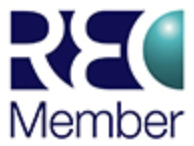– Secure yourself the salary you deserve!
So, you have gone through the interview process and been successful in getting an offer, but when the proposal comes through the salary doesn’t quite meet your expectations. What do you do? Do you accept the role regardless and hope for a pay rise in the future, (after all it’s the job you want)? Or do you negotiate to secure a better deal? The answer to this question is obvious right? You need to negotiate! But we know it’s not that easy; it can be scary to discuss money. Well, here at Selective Recruitment we have a lot of experience in discussing salaries, so we thought we’d share some of our top tips on how to make sure you secure the pay you deserve.
1 – Know what salary you are looking for before you go for an interview.
To start with, it is a common mistake to wait until you’ve been through the interview process and are at the offer stage to discuss your salary requirement. Roles are often advertised within a wage bracket and these can be quite large, sometimes up to £10,000 or even £20,000, which is a huge banding. Companies often advertise positions in this way because they are able to consider someone with less experience, that they can train (who would sit at the bottom end of the pay scale) or would employ a candidate that meets all the qualifications and expertise they require (who would sit at the top end of the pay scale). The trick is to know where your skills sit along this banding and be clear about your minimum salary expectation. Where possible it is good to set your intention early on, if possible, at the application stage, but if not, it may be worth including a question at the end of your interview to open a dialogue around salary. If you make it clear what you are looking for early in the recruitment process prospective employers are more likely to offer what you are seeking, and you will avoid that awkward conversation later on.
2 – Know your worth
One of the driving forces behind looking for a new role is often a pay rise. But another common mistake people make is applying for roles that are too similar to the one they currently have and thus they have a similar salary. If you are aiming to secure a pay rise in your next role you need to be aware of this when making applications. Are you staying within your comfort zone or are you putting yourself forward for positions that are going to stretch you? It may be easier to think of it in terms of career ladder; if you are looking to step up and secure a larger pay packet you need to apply for roles that reflect this. It may be prudent to reframe how you think about your next pay packet, focusing not on an incremental pay rise, but what you could earn.
3 – Consider the whole offer
It is very easy to focus solely on salary and make a decision based on this. We are not suggesting that it shouldn’t be a key factor, but many companies now offer so much more. It is therefore imperative to consider what else will be included in your employment package. Will there be any other financial rewards such as a bonus, company car or share schemes? Is there the possibility of training, which in turn could increase your ability to secure a higher salary? What else is important to you? In recent times flexibility has been identified by many as key to ensuring a work-life balance, whereas others seek good healthcare, holiday allowance or pension schemes. To be solely focused on your annual take home, may mean you overlook other benefits. Consider the whole picture when making a decision and don’t be blinded by numbers.
4 – Seek Clarification
If you are unsure why you have been offered a specific amount, then ask why. Don’t be scared to find out why you have been made an offer as the answer is likely to impact your decision. Remember, you can reject an offer based on salary, but an offer cannot be rescinded because you want to discuss the salary. It may be, as discussed in the previous point, that a company has other things to offer or that they are restricted by banding scales or budgets. It is likely that they will have considered their offer but will be open to negotiation. Lest we forget, businesses will look to secure a good deal for themselves too, and although they may have a maximum spend, they will look to stay within their budgets.
5 – Speak to a Recruitment Consultant
One of the advantages of working with a Recruitment Consultant to find your next role is that they are able to offer advice based on their industry knowledge. They have an understanding of pay scales for certain roles and locations as well as being able to offer specific company insights. Perhaps more importantly, your consultant can support you to have a discussion about pay or have it on your behalf. When registering with Selective Recruitment an important part of our candidate interview process is discussing the expectations for your next role and speaking at length about salary and the factors that will make a job appeal to you.

